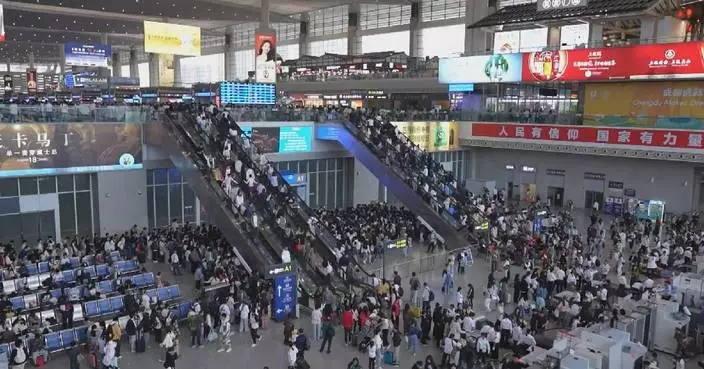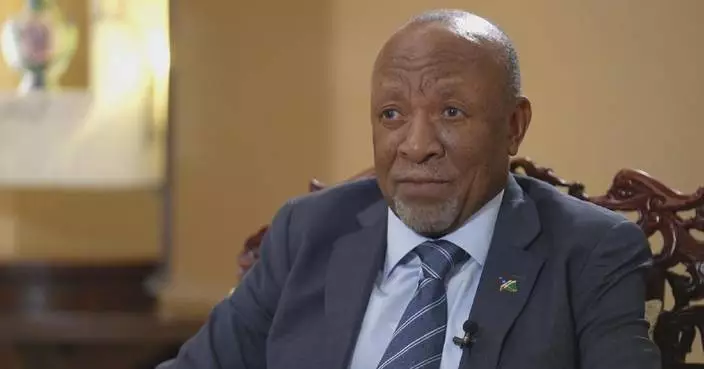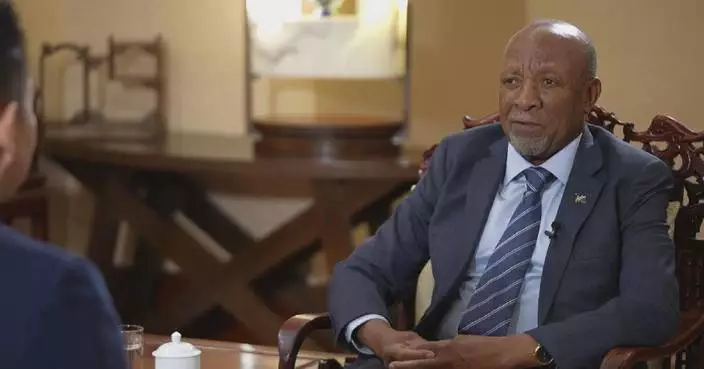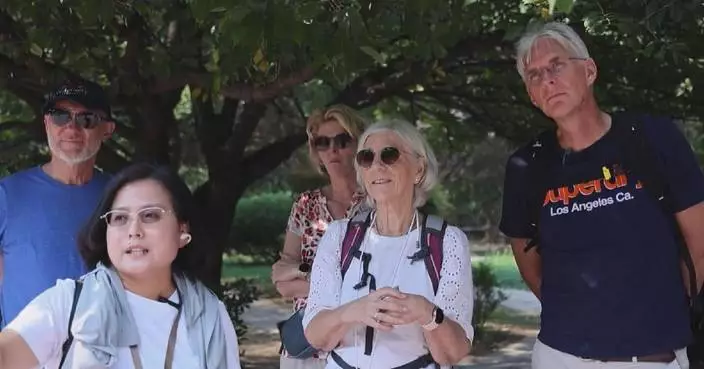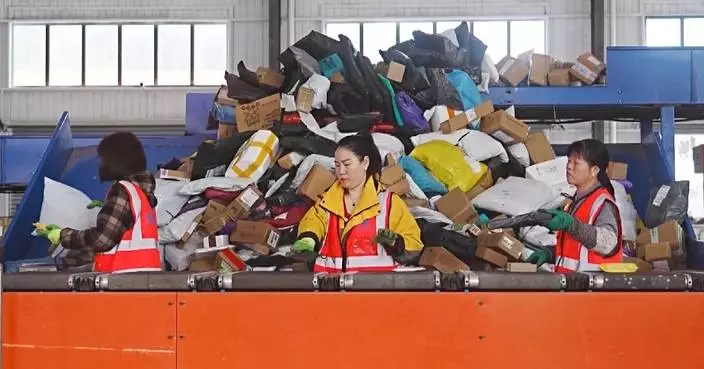Peruvian President Dina Ercilia Boluarte Zegarra expressed her fancy for Chinese food and mentioned her favorite dainty in an interview with China Central Television (CCTV) during her visit in Beijing. "There are Chinese restaurants all over Peru and all Peruvians love Chinese food. My favorite dish is chicken rolls with fried wontons and a sweet tamarind sauce for dipping. It's also interesting to note that if we eat Chinese food it has to be paired with a Peruvian carbonated beverage, Inca Cola. Chinese food and Inca Cola make a great lunch pairing and no one will be left wanting," said the president, who paid a state visit to China from June 25 to 29 at the invitation of Chinese President Xi Jinping.
In Peru, Chinese restaurants are called "chifa" which means "to eat" in Cantonese. Chifa also refers to the Chinese Peruvian culinary tradition based on Cantonese elements fused with traditional Peruvian ingredients and traditions.
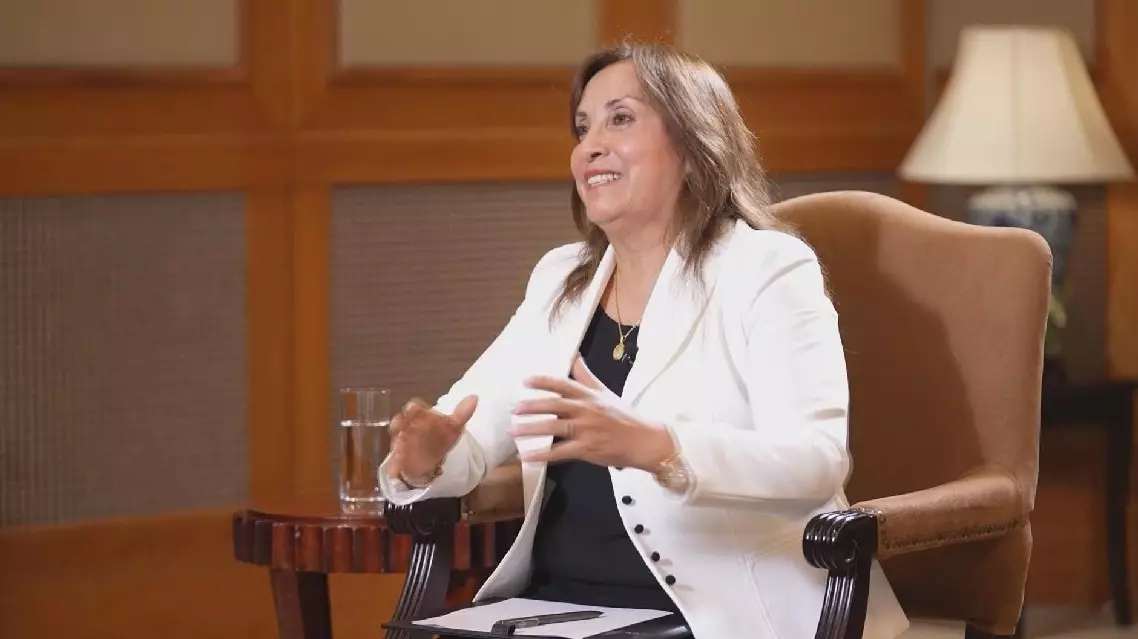
Peruvians have fancy for Chinese food: Peruvian President
Israeli strikes on Lebanon have left many people in urgent need of medical care, adding pressure to an already struggling healthcare system of the country.
Since Sept. 23, the Israeli army has been conducting intensive airstrikes on Lebanon in a dangerous escalation with Hezbollah.
Lebanese Health Minister Firas Abiad reported on Thursday that a total of 1,974 people have been killed, including 127 children and 261 women, and 9,384 others wounded in Lebanon since the onset of the Hezbollah-Israeli conflict in October last year.
With NGOs and medical teams being targeted in the escalating conflict, the Lebanese government is urging the international community to advocate for a ceasefire.
Following a devastating airstrike on a medical center, residents quickly began to clean up. Paramedics and volunteers scrambled through the debris, hoping to find any signs of life.
The missile struck the third floor, which houses the hospital's rehabilitation center. Only a few scattered items remain amidst the rubble, including surgical gowns and gauze.
"I was at the center, coming down the stairs to grab supplies. As soon as we got the people out, the attack struck at 12:11. I went back up but left a few wounded behind; the rest became martyrs," said a witness.
NGOs and medical teams have been targeted amid Israeli strikes. Earlier on Sept. 28, another devastating strike leveled a medical center, killing 11 health workers and injuring 10 others.
The Lebanese Civil Defense also reported that one member was killed and another critically injured during Israeli airstrikes on the southern suburbs of Beirut on Sept. 27.
These incidents were not isolated. Since last October, attacks on medical facilities have become alarmingly frequent, forcing numerous centers out of service. According to the government, this has become a repeated tactic.
"We've seen almost more than 20 (between) hospitals and medical centers have been attacked. We've seen almost 130 vehicles that have been targeted. So, unfortunately, the same playbook that we saw in Gaza where hospital facilities, health facilities and health personnel were targeted (here) as well. Israel are repeating their same playbook in Lebanon as well," said Firas Abiad, Lebanese Minister of Public Health.
The situation is becoming increasingly unsustainable as hospitals struggle to keep up with the growing number of casualties. The relentless airstrikes and widespread destruction have left many medical facilities barely functioning, pushing the healthcare system to its limits.
However, the health minister warns that medical aid alone won't resolve the crisis.
"This sore situation cannot be solved with more medication or more medical supplies. The only way to be able to control, to be able not to move into a very bad humanitarian situation in Lebanon or even regionally, as we see this conflict starting to expand, is to have an immediate ceasefire," said Abiad.
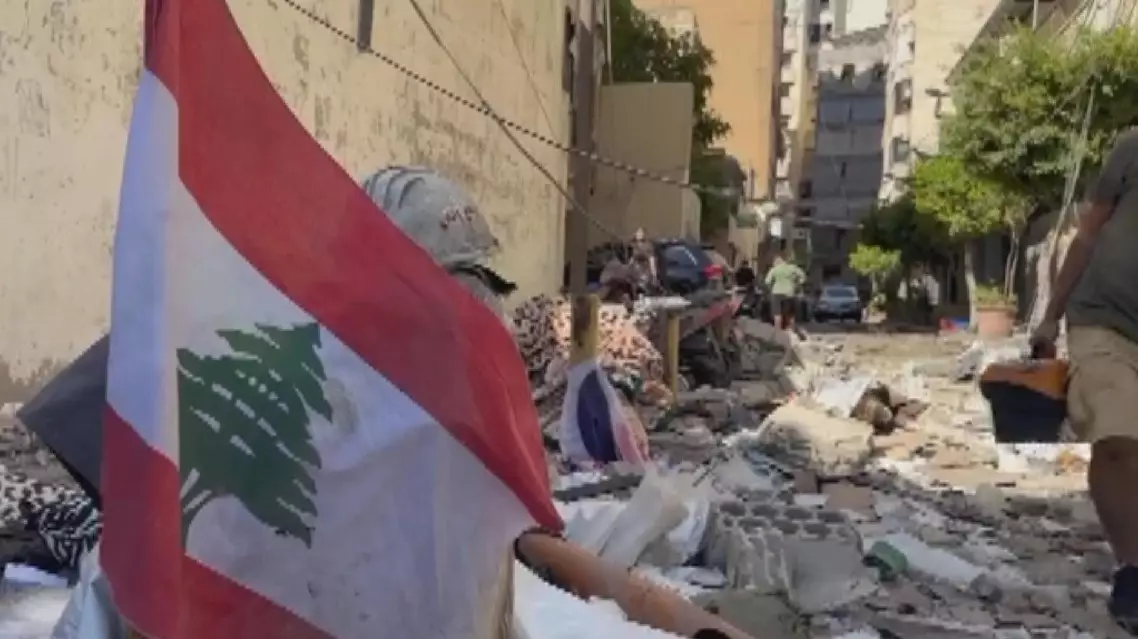
Lebanon faces humanitarian crisis amid lack of medical supplies




